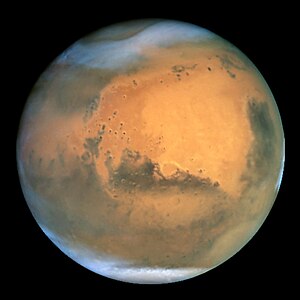I don’t know how many of my readers actually browse the links over on the right-hand side of this page but I would like to draw attention to the Mars One Project listed as ‘Colonising Mars‘ under ‘Astronomy’. All of my life I have been interested in astronomy and space flight. I watched all the Moon projects and landings and always thought that one day mankind would venture further afield to explore our solar system. The Solar System is a very hostile place, even for the Earth but we are in a unique position and living on a very unique planet, one so finely balanced to allow life to flourish like nowhere else as far as we know. It is the only place in the Solar System that comes anywhere near the correct conditions for life, none of the other planets or their moons are really suitable for life to flourish. This is not to say that mankind could not populate some of those places but the prospect is fraught with problems. The first consideration is the temperature which must be of a reasonable level to allow any form of colonisation. Next is the atmosphere, it must not be corrosive or poisonous and it mustn’t be too dense. The next consideration is gravity which also must fall within acceptable levels. Then there is the availability of water, we cannot live without water. For small colonies the provision of a breathable atmosphere and water is less of a problem but even so would require an enormous effort to provide on a far off planet or moon. Ideally these commodities would be sourced on the planet itself rather than having them shipped from Earth. Initial supplies would naturally come from Earth but the colony would then need to provide these things for themselves. Aside from these essentials there is the need for protection against solar radiation, even here on Earth radiation can be a problem but we are protected from the more dangerous radiations by our strong magnetic field which forms a powerful screen deflecting the harmful radiation around the planet. Some of this radiation is pulled down into the atmosphere at the North and South poles giving us the Aurora Borealis and Aurora Australis or Northern and Southern Lights. The only planet that can possibly provide the basics for a colony under reasonable conditions is Mars. Mars has an atmosphere albeit quite tenuous, it probably has water too although at this moment that has to be proven. The temperature is cold but not extremely so. Nevertheless the night-time temperature drops to almost -150C in places whilst the maximum daytime temperature hardly exceed +20C . (For more comprehensive information see http://quest.nasa.gov/aero/planetary/mars.html )
It is of great interest to me therefore that there are organisations currently interested in making the prospect of colonising Mars a real possibility aside from NASA. The Mars One Project is one such organisation. They are proposing to have a small community of scientists living on Mars by 2023. Whether that is a feasible proposition to be fulfilled in ten years considering the planning and organisation of such a project I am not quite sure but no doubt it will be pursued whether or not. According to their proposals the journey would be one-way only so whoever decides to volunteer as a colonist will not have the opportunity to return to Earth, at least as things stand at the moment. That may change further down-line. Personally I cannot see the reason for such explorations even though the thought fascinates me. If we do colonise Mars or any other place within the Solar System it is unlikely that we would gain the ability to go further afield. I am more concerned about the planet on which we live and I think every effort should be made to make this a better place for us all, but that takes all of us to be interested!
Shirley Anne
Related articles
- Curiosity’s weather report from Mars reveals ‘truly enormous’ daily atmospheric pressure swings (phys.org)
- Mars Planet (planets.org.uk)
- NASA decision time: more Mars or go beyond? (cbc.ca)
- Life on Mars? (history.com)
- Testing Mars and Moon soil for sheltering astronauts from radiation (spacemart.com)
- Regolith: Protection for humans on Mars (phys.org)

